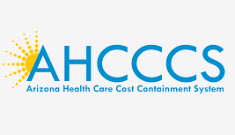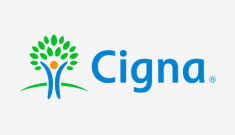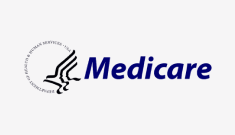We are safe, caring and committed to your recovery
You CAN get your life back
What is alcohol dependency?
Alcoholism is used to describe a condition where an individual has developed a physical and psychological dependence on alcohol. They no longer drink for the social or physical pleasure, but from a compulsive need to consume alcohol. If they don’t, they begin to feel unwell, which drives the compulsion until it becomes a form of substance use disorder.
Once a person has become clinically alcoholic, it is uncommon to regain control over their drinking. Frequently, their only option is complete abstinence. Without alcohol addiction treatment, this can prove very difficult. With the proper alcohol abuse treatment, however, alcoholic patients can and do make a complete recovery, never needing to drink again.
The symptoms of alcoholism
The individual who suffers with addiction for alcohol first notices an increased tolerance for the substance. This means that they must drink in greater amounts to get the same effects as just a few drinks used to give them. Once they start drinking, they experience a powerful craving to keep drinking, and often end up consuming more than they intended to.
This frequently leads to feelings of guilt about their drinking and attempts to hide it from others. They spend more time drinking alone and often deliberately set out to become intoxicated. Eventually, they are likely to experience “blackouts,” a type of amnesia that happens when people drink too much.
As the disease progresses, the individual continues to drink even when it causes other problems in their life. They will become irritable if there is no alcohol available at a time when they would normally drink. They feel uncomfortable if they do not have access to alcohol, so they may begin to hide it around the home to make sure they always have a ready supply on hand.
Eventually, they lose interest in activities that do not involve alcohol. They repeatedly neglect their responsibilities as they struggle with their alcohol intake. Legal, financial and relationship problems start to pile up and become overwhelming, which often leads to more drinking. Unless it is stopped though alcohol addiction treatment, the syndrome of alcoholism will likely continue in this downward spiral, with serious consequences for their health and wellbeing, as well as the safety of others around them.
Are you an alcoholic?
You don’t need to experience all the symptoms described above to be an alcoholic. We can help you determine the level of your dependence, and make a medical diagnosis based on your case history. However, if you find you cannot stop drinking when you want to, or if you have little to no control over how much you drink, you may be suffering from treatable alcoholism.
Alcohol Withdrawal
If their dependence is extensive enough, alcoholics will experience withdrawal symptoms when they attempt to significantly reduce or quit altogether. In fact, alcohol continues to be the most dangerous drug to withdrawal from. Patients with severe alcohol dependency can suffer life-threatening seizures and delirium tremens (see more in the “Severe Withdrawal” section below). All patients suffering from any degree of alcohol withdrawal should be evaluated and receive medical treatment. If their addiction for alcohol is severe, they should detoxify under medical supervision.
Common symptoms of alcohol withdrawal
- Nausea and vomiting
- Headaches
- Abdominal pain
- Fatigue
- High temperature and/or chills
- Unpleasant, vivid dreams
- Tics and tremors (‘the shakes’)
- Irregular or increased heart rate
- Excessive sweating
- Shaking and shivering
- Decreased appetite
- Depression
- Anxiety
- Insomnia
- Mood swings
- Confusion
- Irritability and agitation
- Difficulty concentrating
- Intense cravings for alcohol
Severe withdrawal
The most severe symptoms of alcohol withdrawal syndrome (AWS) are called delirium tremens (DT) and are potentially life threatening. DT symptoms occur in around 3%-5% of people experiencing AWS.
If you know someone experiencing delirium tremens, consider it a medical emergency and seek immediate medical attention. The symptoms include severe disorientation and confusion, extreme agitation, visual and/or auditory hallucinations, seizures, fever and high blood pressure.
Alcohol Use Disorder Treatment
- Naltrexone
- Vivitrol (Naltexone long acting injection)
- Acamprosate
- Gabapentin
Getting treatment
Direct2Recovery uses clinically proven alcohol abuse treatment methods that are carefully prescribed according to the patient’s individual needs. We will make a medical assessment based on your current health conditions and determine a course of treatment that will best address your dependency.
Thankfully, there is hope. We have over 10 years of experience that proves you can recover. Compassionate, comprehensive alcohol addiction treatment is available through Direct2Recovery. Call and make an appointment for your personal assessment today.
We accept most major insurances









